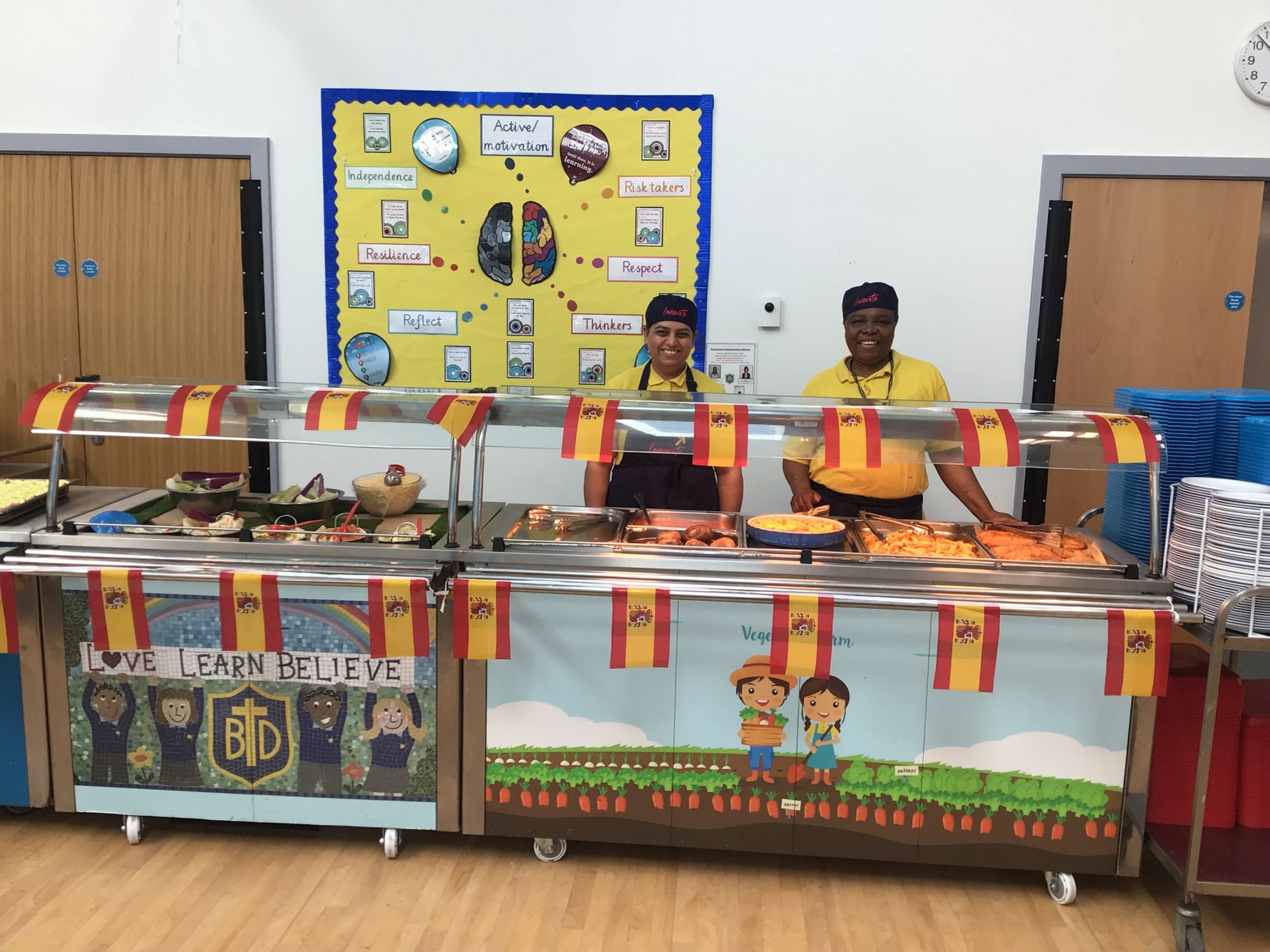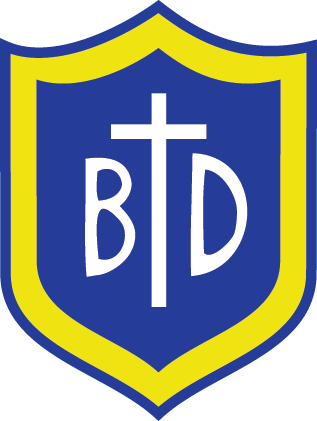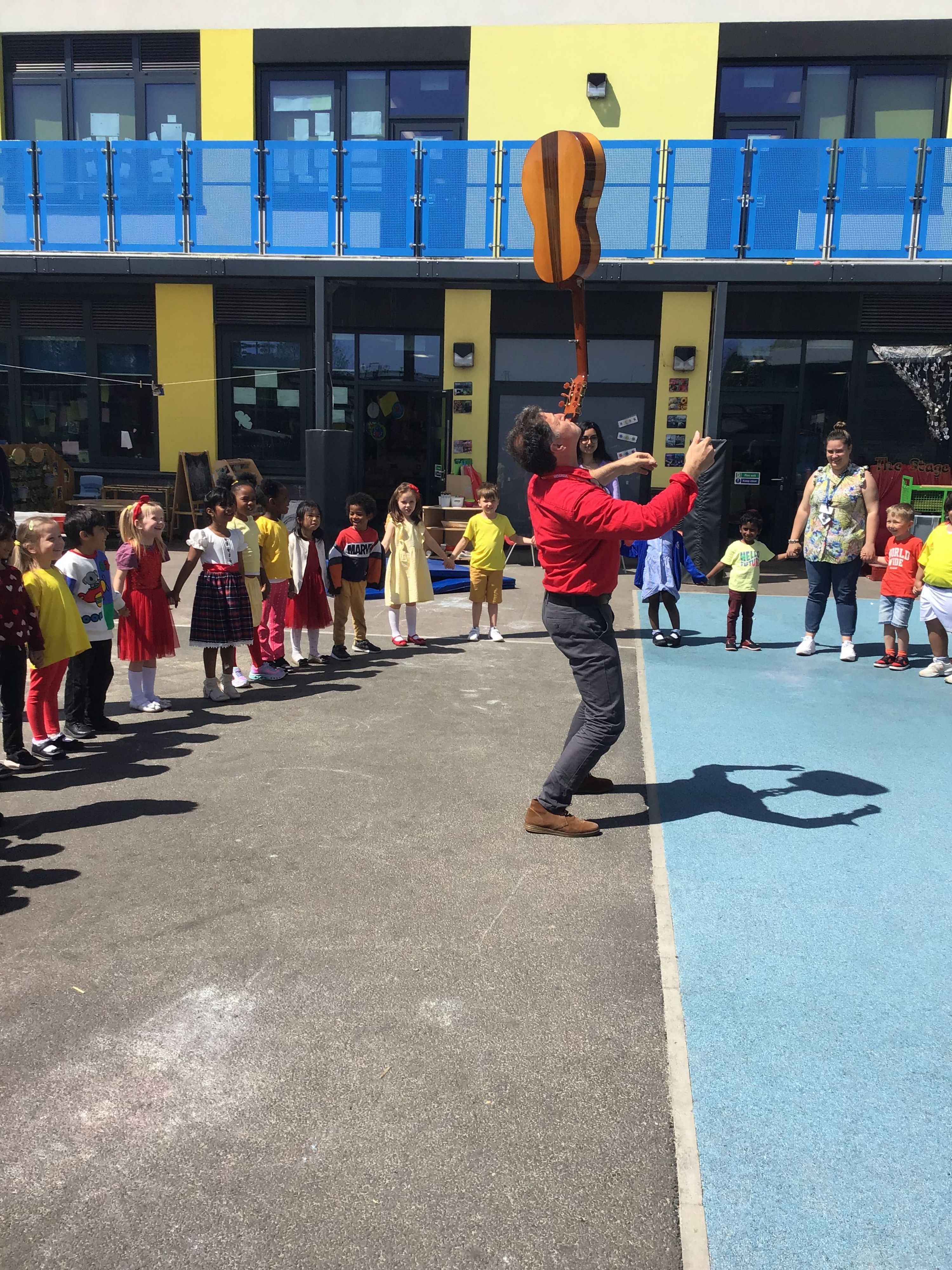Spanish
Spanish Vision
At Blessed Dominic we believe learning a foreign language is a necessary part of being a member of a multi-cultural society and provides an opening to other cultures. Spanish has been chosen as the taught language as it is the most widely spoken language after English and reflects our culturally diverse community. A high-quality languages education should foster children's curiosity and allow for wonder of the world around us which ultimately will deepen their understanding. The teaching should enable children to express their ideas and thoughts in another language and to understand and respond to its speakers, both in speech and in writing, which will be achieved through coherent and structured lessons in line with national curriculum expectations.
It should also provide opportunities for them to communicate for practical purposes, learn new ways of thinking and read great literature in the original language. Language teaching should provide the foundation for learning further languages, equipping children to study and work in other countries. Through the teaching of Spanish, children can apply their knowledge to future aspirations and interests. It is intended that when children leave Blessed Dominic, they will have a natural curiosity and confidence to explore other countries, cultures and languages, recognising that in a multi-lingual society it is a valuable skill to be able to communicate effectively with others in another language and appreciate culture.

Characteristics of a Linguist
At Blessed Dominic Catholic Primary School, we are Linguists. We have…
- Great confidence when speaking with intonation and pronouncing words correctly.
- The ability to read fluently.
- Strong imaginations which we can apply to our writing.
- Appreciation for other cultures and can recognise where languages are spoken.
- Great passion towards our learning and show commitment towards our MFL education.
- The ability to apply taught language to writing and to use it creatively.
- The knowledge to apply resources to our learning.
What does this look like at Blessed Dominic Catholic Primary School in…
KS1
Pupils begin to learn how to greet others in Spanish as well as looking at how to name their feelings. Children in KS1 learn numbers from 1-20 through songs and games as well as the names of each colour. They are taught to identify animals (masculine and feminine) and provide their opinion on what they like and do not like. They begin understand how to ask questions as well as provide answers, building on their ability to speak and understand conversation in Spanish fluently.
KS2
Pupils should continue to develop a secure understanding of how to ask and answer questions in Spanish and build on their prior knowledge by learning more numbers and language related to conversation. Pupils are taught how to describe the weather as well as tell the time and further develop their ability to voice their likes and dislikes, both verbally and through writing. They are regularly given the opportunity to recap their previous learning and deepen their understanding to allow for fluency in the language. Their knowledge is secured through learning about Latin America, Spanish culture and history.
Memorable experiences and whole school events
Our MFL curriculum is taught through exciting lessons, which is achieved through songs, games and role play. Children have the chance to showcase their learning during Spanish Day, which is a day dedicated to celebrating their achievements in the subject and making cross-curricular links. They are able to explore Spanish art, foods and dancing, bringing their learning to life.
Cross Curricular
Our MFL curriculum allows children to build on their ability to write fluently, looking closely at verbs that they use in English and MFL lessons. Furthermore, subjects such as Art, Drama, Dance and History provide for Spanish learning objectives which are mostly presented to the children in the context of Spanish Day.
Trips and extra-curricular opportunities
Children explore Spanish art, foods, traditions and dance, throughout our multicultural day.
Planning
Planning is completed by the specialist Spanish teacher, following an assigned scheme of work. It is also focused upon meeting National Curriculum objectives.
Assessment
Children are assessed using quizzes, orally and mini plenary questions and through matching tasks. They are also assessed through writing and drawing tasks. Each half term, the Spanish teacher completes the school's assessment proforma , which tracks pupils knowledge and understanding from each topic.
Challenge
Children are offered challenges and have adapted learning using scaffolds based on their understanding and exposure to the language outside school.
Impact
At Blessed Dominic Catholic Primary School, we measure the impact of our curriculum through the following methods:
Pupil Voice
Children are exposed to themed days where they can describe their Spanish understanding and show how this learning can be applied to other areas of the curriculum. Children also have the opportunity to complete evaluations of their Spanish experiences to support the Specialist teachers planning and assessment.
Evidence
Children’s books are reflective of learning that is age related and of the correct ability. Their learning progresses and is built upon as they proceed through each year group and are exposed to great quality of teaching. They will be able to use speaking and listening tasks to demonstrate their ability to use the language in context and in the KS2 children are exposed to more written examples of these lesson to enable them to have access to write using Spanish terms. Therefore, they will develop a range of knowledge and skills through various activities and opportunities to present their learning.
Outcomes
The overall impact of our MFL curriculum is that children are encouraged to understand the relevance of what they are learning in languages and how it relates to everyday life and travel. It is also to give them the opportunity to experience a diverse range of cultures. Children will know more and remember more about MFL and will recognise and apply key Spanish vocabulary orally.

